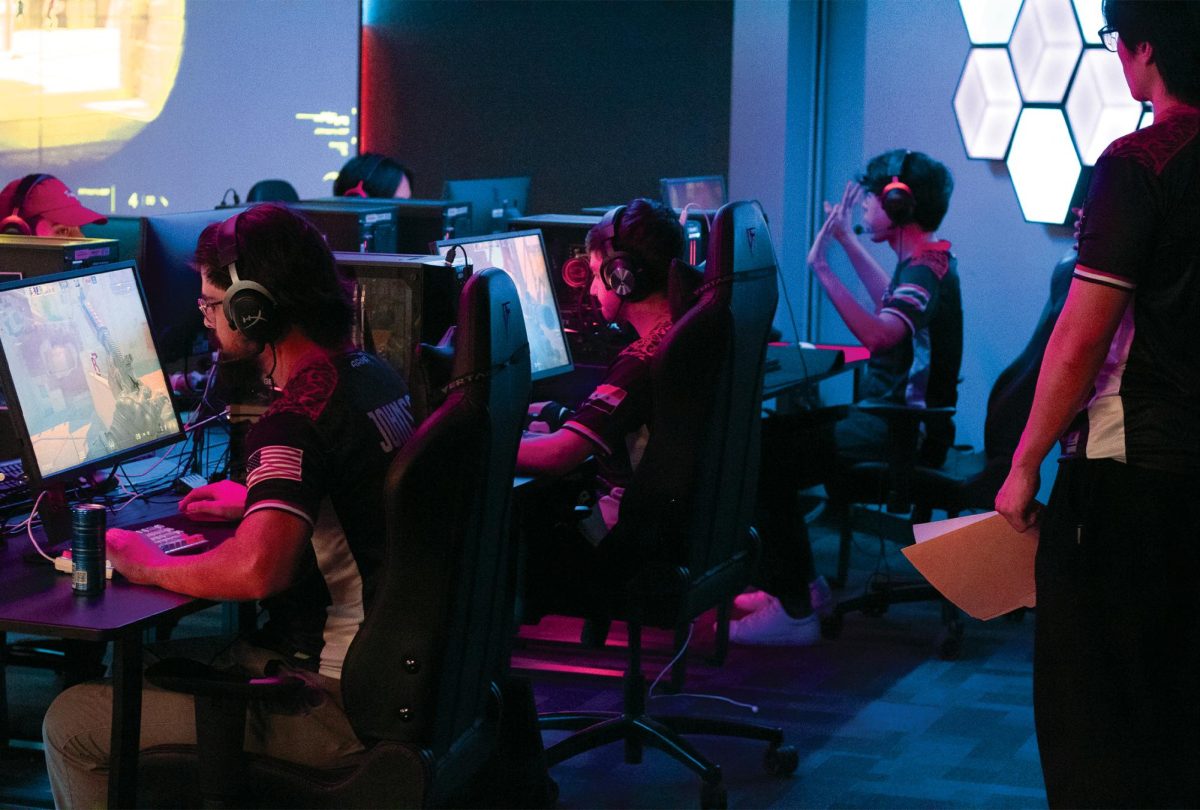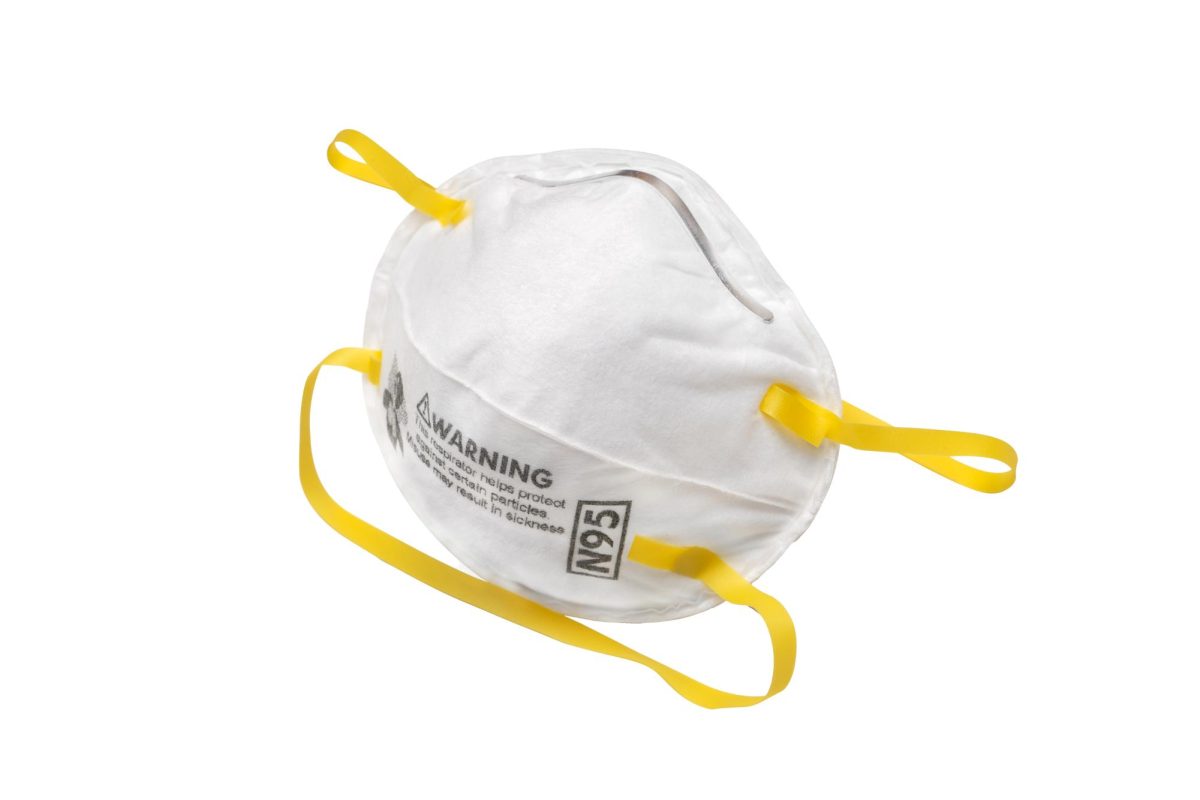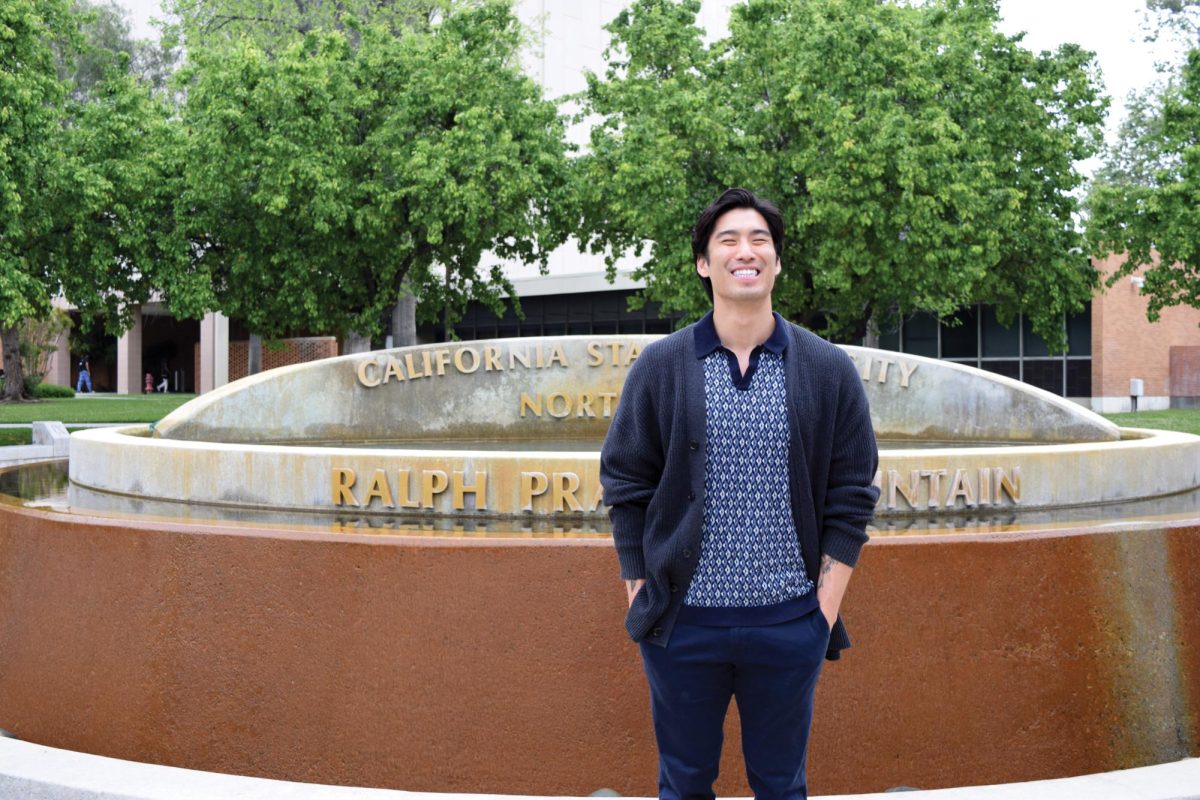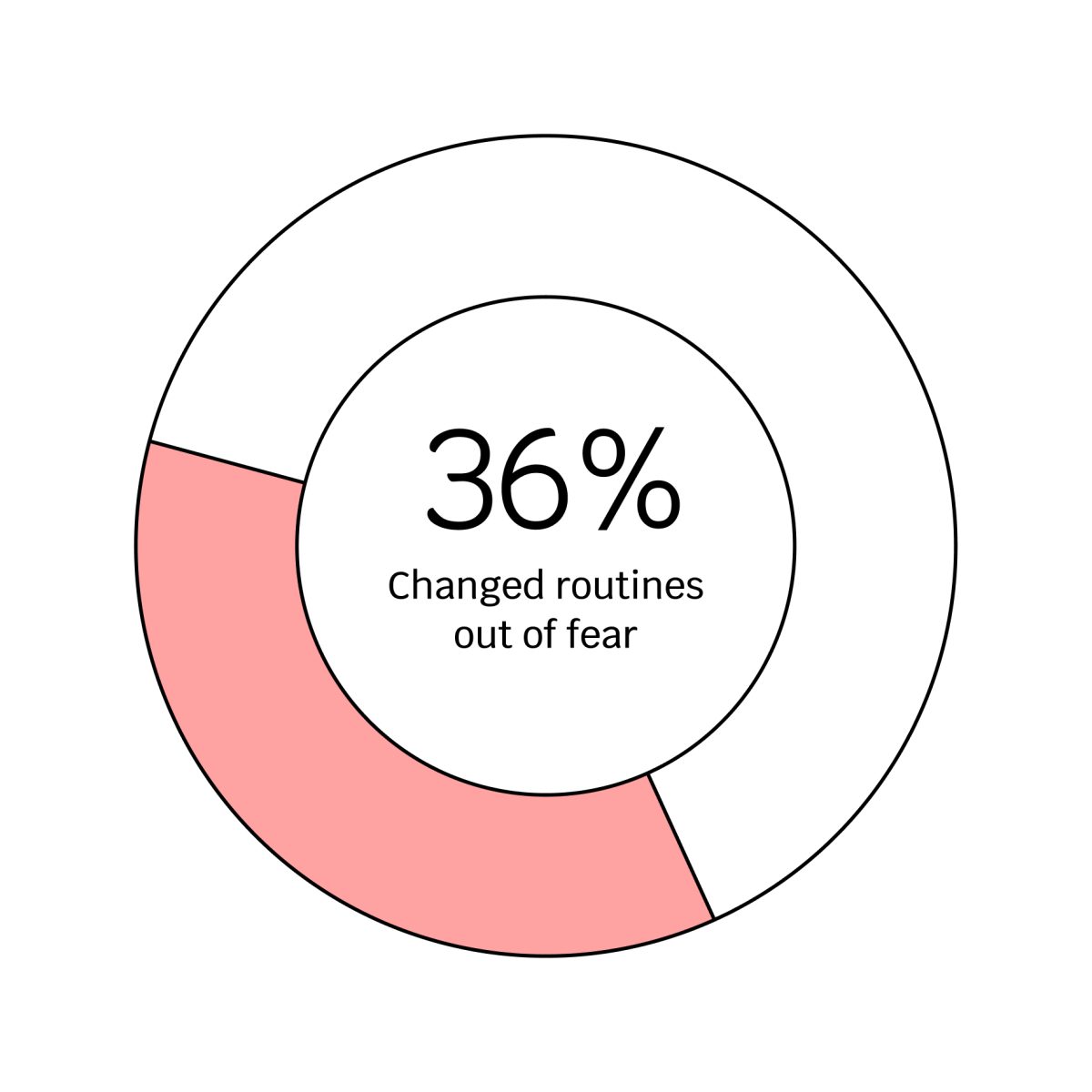The California State University, Northridge esports club is growing with prospects to bring in more students of all levels amidst the rise of competitive gaming.
Within the ever growing gaming industry, esports are a space dedicated to people who have a talent or passion for competitive gaming. The CSUN esports club, founded in 2015, survived the pandemic with online meetings that helped keep them connected and create a sense of community before returning to the Games Room in the University Student Union as campus reopened.
With esports being new, but constantly growing, some people may not know what esports are or what they are all about. President of the CSUN esports club, Parteek Singh Sidhu, gives context and compares them to track and field.
“In other sports, you ask anyone ‘I play badminton, I play archery,’ and everyone automatically thinks of one team or one sport, but if you say track and field, some people will say running, others will say discus, some javelin,” said Sidhu. “So that’s kind of like what esports is, where esports is the generalized term used for all these different types of games.”
The esports club has teams built for certain games like Valorant, Call of Duty, League of Legends, Super Smash Bros Ultimate and Counter-Strike 2.
Some of the teams can play competitively by participating in collegiate programs like NACE and FACEIT and play against other schools.
Team manager of the Counter-Strike 2 teams, Micah Forteza talks about what practicing with their teams looks like at the esports club.
“At the heart of it all, as a collegiate esports club, I want to make sure my players are having fun first,” said Forteza. “Practice, I feel like, is definitely a lot of talk, a lot of gaming. We look at VOD reviews, we do professional Twitch VOD reviews for majors and big tournaments that they’ve been broadcasting.”
The club has hosted events before, including Ruler of the Ring, a tournament for Valorant, a competitive first-person shooter team-based game, and MatadorWorld, an esports event that featured an industry panel, a free to play area and an invitational tournament where local universities were invited to compete in certain games.
The esports club helps build a community and friendships, while also creating networking opportunities for people interested in making it into a career, building their resumes helping them gain experience.
“First, you have the club side where it’s something casual, you join a club to have fun, to meet people, to make friends and connections,” said Sidhu. “On the other side, we’re also a university club, so we have to hold ourselves at a little higher standard and have a certain level of professionalism because some people who join the club don’t join it just for casual reasons. They join it because they actually want to enter that field, that industry,”
The club is not solely gameplay focused, which allows for other networking opportunities outside of competing.
“We have different departments we offer in the club such as graphics, marketing, media, socials as well as [being] professional players managers and team captains,” said Sidhu.
Some competitive teams made notable achievements, including the Call of Duty team’s top ten national placement and the Valorant teams’ being able to play test in the new Riot Arena, where tournaments are held for professional esports teams.
The club also won the CSUN Sports Club of the Year award for two consecutive years and collaborated with Razer, a gaming hardware company, and Pizza Hut.
Sidhu has plans to expand the club to the whole campus and hopes to educate newcomers about esports. Esports are often seen as competitive and having a high barrier of entry to participate, but there is a casual side to it where people can enjoy viewing or playing the game without pressure.
“If you’re looking at the competitive scene, [it’s] insanely hard to enter that. You have to be good in order to even get your foot in that door, but if you’re looking in terms of making friendships, you don’t need to be good,” said Sidhu. “If you look at it from a base level, I feel like anyone can just pick up a console, anyone can pick up a controller, anyone can pick up a PC and just download a game and have fun.”
Esports are sometimes seen negatively and not taken seriously due to harmful stereotypes of players that participate or take an interest in it. Sidhu wants to challenge that stereotype.
“There’s this negative connotation around it as its gamers, they’re like, the rejects of society, or like people who only watch anime or never seen daylight or touch grass, so there’s this negative clout around esports and what it represents,” said Sidhu. “We have people who do a lot of other things, not just esports. This is like a hobby to them, some of them it’s a profession, but it’s more than that. They can do other things and show off.”
As the club continues to expand, and as more students learn about esports, it aims to create a space where everyone can enjoy their passions together.
“I’m hoping that people are more open, or more accepting of what we can do,” Sidhu said. “And it’s not going to be limited to the gaming community itself, that’s already been established, but open it up to the whole campus.”



